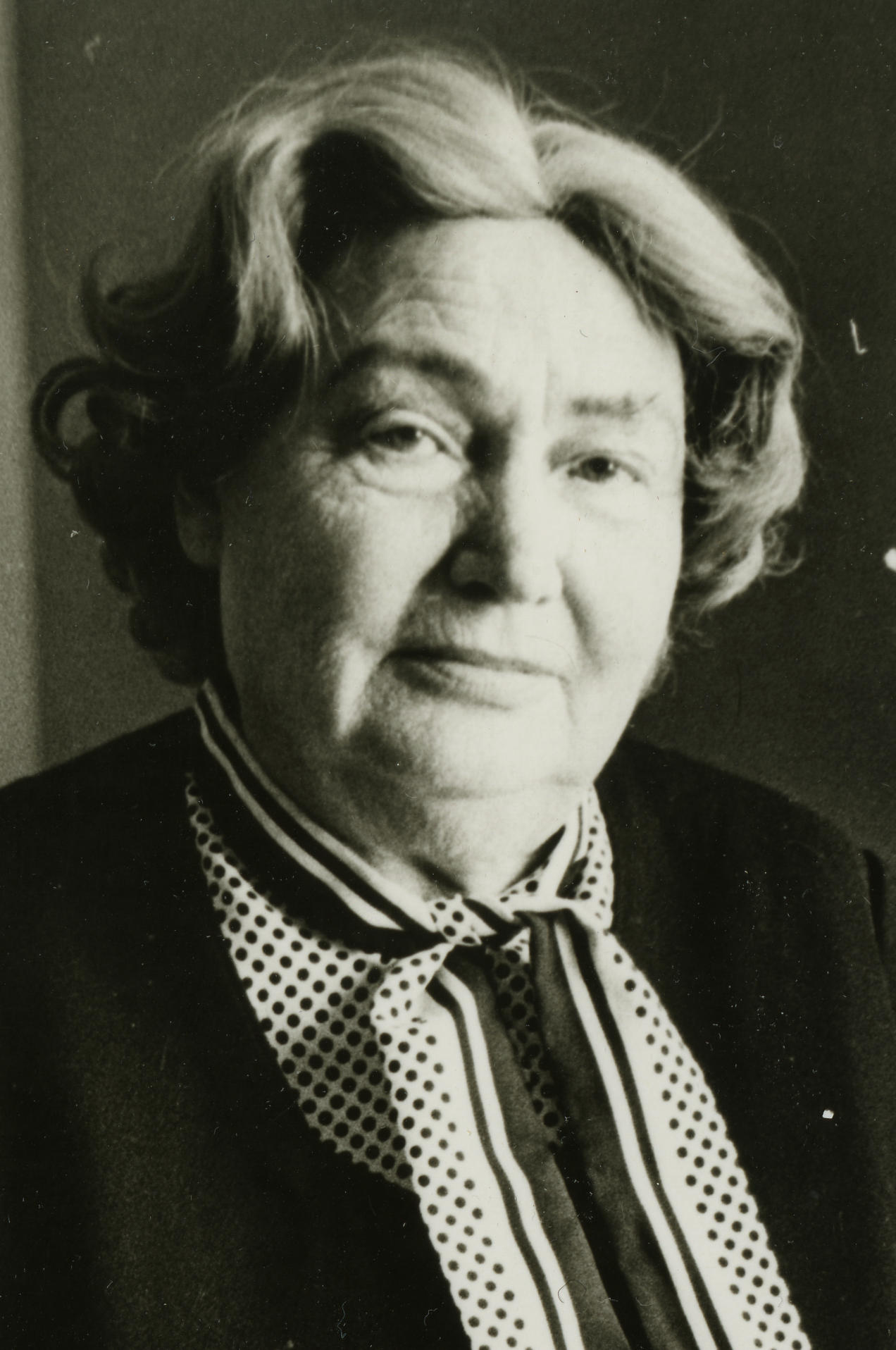
Herta Laipaik
Herta Laipaik (29. I 1921 – 17. I 2008) won the affection of readers in the Soviet period for her stories for young people on the theme of Siberia. Later she aroused attention for her series of masterful literary folktales inspired by Estonian folklore. She had an abundance of flights of fancy as well as attention to the details of actual circumstances.
She was born in Hummuli parish in Valgamaa county into an artisan family. In 1940 Laipaik graduated from Tõrva co-educational Gymnasium and studied medicine from 1940 to 1943 at the University of Tartu. In the difficult years of the forties she began by working as a journalist, later as a nurse. As a deportee from Estonian she worked from 1950 to 1953 in Siberia, at Razdelnoye hospital in Krasnoyarsk Krai. After returning to Estonia she worked mostly as a librarian.
Laipaik’s first work, the novel Teenijatüdruk Kärt (‘Kärt the Servant Girl’), appeared in 1944, but because of war conditions the book did not reach a readership. The narrative Hõbetähega taigas (‘With a Silver Star in the Taiga’, 1958) and the short story collection Üksik paat Jenisseil (‘A Solitary Boat on the Yenisei’, 1966) were written with historical precision and the thrill of the exotic. In the children’s book Professor Lillepooli kroonika (‘The Chronicle of Professor Lillepool’, 1982), the author tried her hand at science fiction.
The collections of literary folktales Maarjakask (‘Curly Birch’, 1983) and Kurjasadu (‘Raining Evil’, 1987) as well as the collection of tales Pipratoosi tondid (‘The Pepperpot Ghosts’, 1990) make use of the folk heritage of the author’s childhood homeland in South Estonia.
At the end of the Soviet era and in the nineties Laipaik published several novels, in which she described the tribulations of the hard times in her life with unvarnished truthfulness, such as the novel Hallid luiged (‘Grey Swans’, 1986), about the imprisonment of the female protagonist during the German occupation, Angara ääres. Anno 1950 (‘By the Angara, Anno 1950’, 1992), depicting the life of deportees to Siberia, or the novel Koerakoonlane (‘Dog-faced Monster’, 1993) about the fate of a spy after the Second World War. The author had no illusions about human depravity, but she believed in goodness of heart and the meaning of life.
In addition to historical prose, crime stories and fantastic literature, Laipaik also published criticism and works on current affairs.
L. P. (Translated by C. M.)
Books in Estonian
Novels
Hallid luiged. Tallinn: Eesti Raamat, 1986, 190 lk.
Vagajutt vaskraamatust. Tallinn: Kupar, 1991, 78 lk.
Angara ääres. Anno 1950. Tallinn: Eesti Raamat, 1992, 240 lk.
Koerakoonlane. Hingepüüdja. Jutustused. Tallinn: Katherine, 1993, 302 lk.
Pelg. Tallinn: Eesti Raamat, 1993, 159 lk.
Pärlid surevad pikkamisi. Tallinn: Eesti Raamat, 1993, 301 lk.
Ilutüdruku lilled. Tallinn: Katherine, 1994, 198 lk.
Musta opaali rada. Tallinn: Eesti Raamat, 1996, 286 lk.
Oma koja narr. Tallinn: Eesti Raamat, 1998, 215 lk.
Ood litrilisele õhtukleidile. Tallinn: Olion, 1999, 255 lk.
Stories
Hõbetähega taigas. Tallinn: Eesti Riiklik Kirjastus, 1958, 256 lk.
Üksik paat Jenisseil. Tallinn: Eesti Raamat, 1966, 152 lk.
Kummitus muusikatoas – Doktor Vallaku mõistatus. Tallinn: Eesti Raamat, 1977, 240 lk.
Professor Lillepooli kroonika. Tallinn: Eesti Raamat, 1982, 168 lk.
Pipratoosi tondid. Tallinn: Eesti Raamat, 1990, 139 lk.
Hauakaevaja lood. Tallinn: Eesti Raamat, 1991, 236 lk.
Literary folktales
Maarjakask. Kunstmuistendeid ühe vana jutuvestja mälestuseks. Tallinn: Eesti Raamat, 1983, 120 lk.
Kurjasadu. Tallinn: Eesti Raamat, 1987, 126 lk.
Memoirs
Tuulekellad. Tallinn: Olion, 2000, 124 lk.



